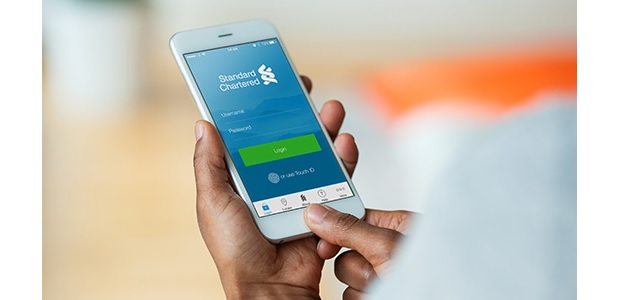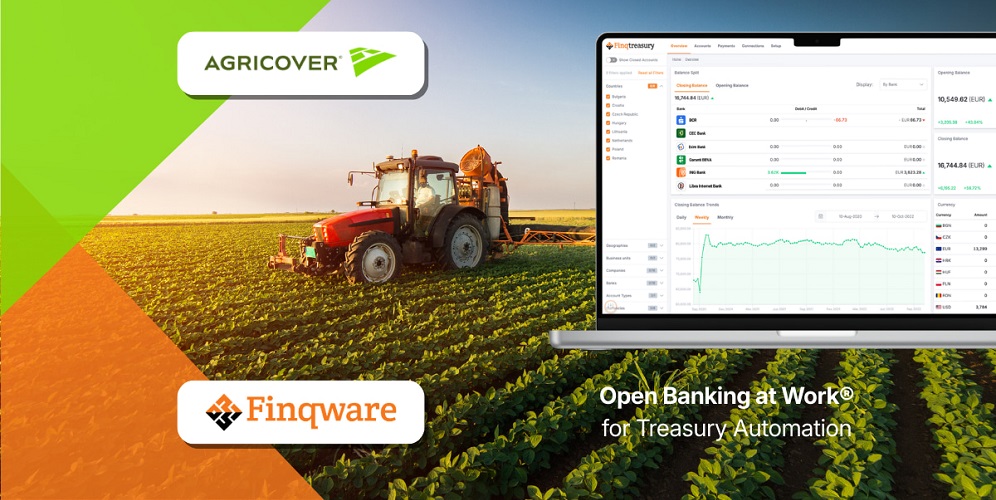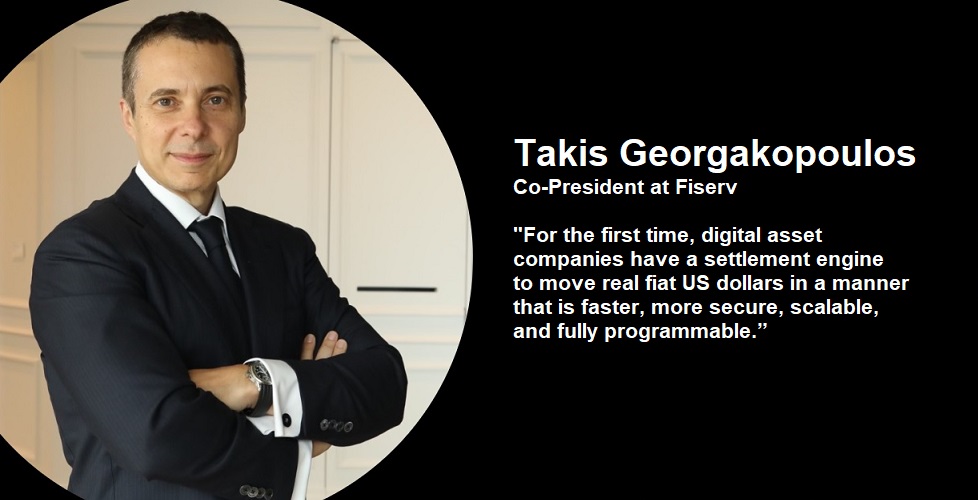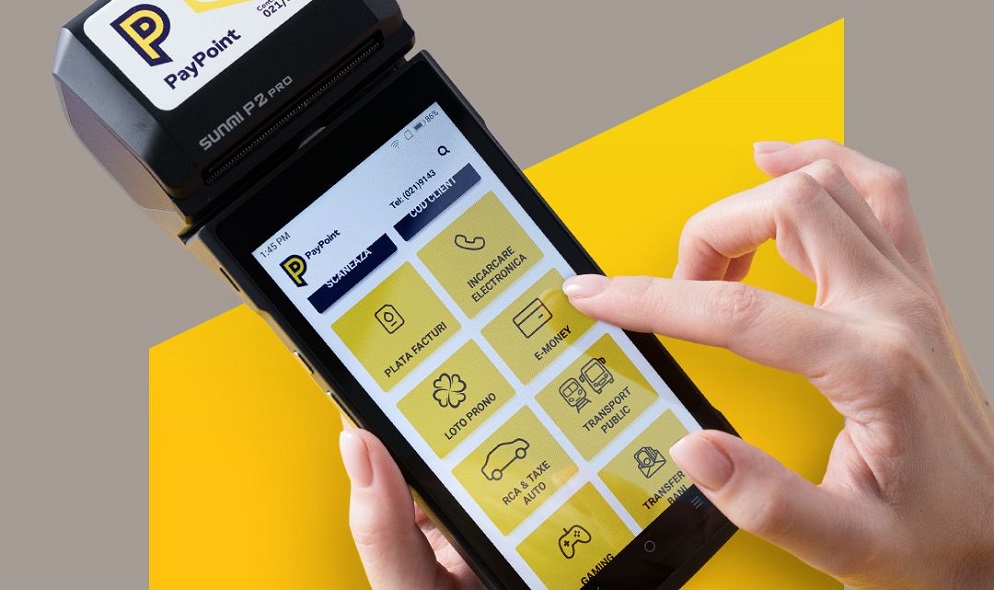Standard Chartered Bank commits to a biometric future – 5 mil. clients in 15 markets will use fingerprint and voice biometric technologies

Standard Chartered will be rolling out a suite of cutting-edge fingerprint and voice biometric technologies across Asia, Africa and the Middle East, so clients can securely access their bank account balances, cards and investments using their unique fingerprint or voice as identifiers.
Reaching more than 5 million clients, this is the most extensive roll-out of fingerprint biometric technology by any international bank and a first in most markets. Standard Chartered’s clients in 15 markets across Asia, Africa and the Middle East will soon be able to access the Bank’s mobile banking services on smartphones and iPads with the touch of a finger. With “touch login,” clients can instantly access their bank account balances, cards and investments on the go using the secure fingerprint recognition technology built into these devices.
Already live in Singapore, the UAE and India, touch login will launch in China, Hong Kong, and Malaysia, Pakistan and the African markets of Botswana, Ghana, Kenya, Nigeria, Tanzania, Uganda, Zambia and Zimbabwe by the end of 2016, depending upon regulatory approval being obtained where required.
The bank will also introduce voice biometric technology for phone banking services for clients in India and the UAE by end of this year, before rolling it out in more markets next year, subject to regulatory approvals.
Standard Chartered’s voice biometric technology captures the physical and behavioural characteristics of clients’ voices, which are as unique as fingerprints, due to the size and shape of one’s vocal tract, mouth and teeth, as well as accent and speaking rhythm. When clients call the bank’s contact centres, their identities will be authenticated through their unique voice prints for a safer and more secure phone banking experience.
Karen Fawcett, Standard Chartered’s CEO of Retail Banking, said: “Fingerprint and voice biometric technologies give our clients more convenience and security when they want to access their bank balances, cards and investments, wherever they are and whenever they want. We’re bringing the latest digital technologies to all our markets so that we can offer easy, convenient and secure banking to our clients.”
Key features of touch login:
. Enhanced mobile banking security – Touch login uses fingerprints to verify identity, making it more secure than username and password logins.
. Convenience: Through the Standard Chartered Mobile app, clients using touch login can immediately access the Bank’s full range of mobile banking services with a registered fingerprint in place of ID and password – from moving money between accounts and checking transactions to paying credit card bills and sending electronic cashier’s orders.
. Available on both iOS and Android – Touch login is available on Apple iOS devices with Touch ID sensors (iOS 9.0.2, iPhone 5S, iPad Air 2, Mini 3 and later releases) and Samsung Android devices with fingerprint sensors (Android version 5.1.1, Samsung S6, Samsung Note 5 and later releases).
Key features of voice biometrics technology:
. Enhanced phone banking security – Voice biometrics uses clients’ unique voice prints to verify identity, making it more secure than username and PIN logins
The bank last year announced it will invest USD1.5bn in technology over three years. The global roll-out of biometric technology is part of Standard Chartered’s commitment to deliver the latest in digital banking innovation to its clients. In July, the Bank announced the roll out of videobanking in nine markets by end of 2016 (Malaysia, Singapore, Bangladesh, China, Hong Kong, India, Taiwan, Kenya and the UAE).
Earlier this year, the Bank launched Retail Workbench in eight new markets (Singapore, India, Pakistan, Malaysia, Bangladesh, the UAE, Kenya and Nigeria); this digital “bank on an iPad” sales-and-service tool lets clients open an account in any location and makes banking services such as loan approvals and credit card issuance fast, simple and completely paperless.
The Bank has also rolled out a new mobile and online banking platform to eight markets in Africa, bringing cutting-edge digital channels to 1 million clients in the region.
Standard Chartered’s retail banking business serves nearly 10 million individual and business clients across more than 30 markets in Asia, Africa and the Middle East, through cutting-edge digital channels, more than 1,000 branches and 5,000 ATMS.
Standard Chartered’s investment in biometrics is the latest in a slew of announcements from banks large and small seeking to streamline remote access to financial services and eliminate the hassle of remembering multiple PINs and passwords.
Just this weekend, introduced technology from 01 Systems to implement finger vein scanners at bank branches and ATMs, enabling customers to access their accounts without need for a bank card or PIN number.
The technology maps the internal vein system within a finger, and will only accept a living finger.
The technology incorporates finger vein devices from mofiria Corporation, a biometrics hardware manufacturer coupled with 01 Systems biometric servers. It is being implemented on ATMs from NCR Corporation.
Source: www.sc.com
Dariusz Mazurkiewicz – CEO at BLIK Polish Payment Standard
Banking 4.0 – „how was the experience for you”
„To be honest I think that Sinaia, your conference, is much better then Davos.”
Many more interesting quotes in the video below:










